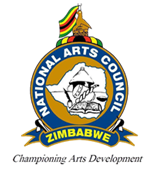This is a dance festival for primary school pupils. The festival aims at safeguarding traditional dances especially among the young Zimbabweans at primary school level. The festival is open to all primary schools in the country.
Background
Zimbabwe is a country endowed with a rich and diverse cultural heritage. This heritage is embodied in both tangible and intangible forms such as dance, and many other forms. Dances are not merely performed for entertainment but at all functions and ceremonies around the entire life of a people. Because of urbanization, globalisation and acculturation this heritage is in danger of disappearing due to lack of appreciation, promotion and recognition. There is need to preserve, revitalize and promote dance forms in Zimbabwe.
It is therefore against this background that National Arts Council of Zimbabwe saw the need to preserve and promote traditional dance forms through the education system by organising programmes and activities that involve appreciation, participating and consumption by children/students, hence introducing Jikinya Dance Festival.
Jikinya Dance Festival showcases various traditional dances by primary school pupils from around the country. The festival is held annually and aims at encouraging children to appreciate and perform Zimbabwean traditional dances thus promoting and preserving Zimbabwe’s rich cultural intangible heritage which is faced with disappearance.
National Arts Council of Zimbabwe (NACZ) inaugurated Jikinya Dance Festival in 2002 and the festival is mainly sponsored by Delta Corporation and Culture Fund Trust. The major partner is National Association of Primary School Heads (NAPH).
![]()
THEME
The running theme for the festival is “Building Zimbabwe through Dance”. However, an annual theme is picked and is in line with the running theme. These yearly festival themes are aimed at focusing attention and promoting specific dance types.
- The schools are guided by the following rules in the Jikinya Dance Festival:
- • The dances should reflect some authentic traditional aspects of a particular ethnic, religious or cultural group in Zimbabwe
- • Any drama or theatrical performance will not be taken as a dance for the purposes of participating in the festival by schools
- • The number of pupils shall be limited to a maximum of thirteen(13) for each participating school
- • Dance teachers and coaches are not permitted on the stage when children are performing
- • A dance performance shall not exceed ten minutes
- • All schools participating at the national festival shall get a certificate
- • The top three schools will receive prize money and a trophy
- • All primary schools in Zimbabwe registered with the Ministry of Primary and Secondary Education.
- • Only primary school pupils are allowed to participate in this festival
THEME
The theme was “Enriching The National Educational Thrust Through Dance” premised on the need to ride on the new curriculum that fully embraces arts education, the theme strives to bring out the importance of dance as a key component of the new learning trajectory. It further seeks to remind Zimbabweans that dance is part of the nation’s intangible cultural heritage that fosters the country’s identity. With the education system now embracing dance as a learning area, Jikinya Dance Festival easily provides information for the educators in this genre of the arts. The Festival is therefore a source of enrichment for the dance genre as a learning area.
The participating schools were;
| Province | School | Dance |
|---|---|---|
| Bulawayo | Matshayisakova Primary School | Wosana |
| Harare | ZRP Support Primary School | Chinyambera |
| Manicaland | Zamba Primary School | Mbakumba |
| Mashonaland Central | Chipindura Primary School | Mbende |
| Mashonaland East | St Joseph Primary School | Chinyambera |
| Mashonaland West | Mhanyame Primary School | Mhande |
| Masvingo | Gaba Primary School | Mbakumba |
| Matebeleland North | Lwendulu Primary School | Isitshikitsha |
| Matabeleland South | Huwana Primary School | Amantshomane |
| Midlands | Chiedza Primary School | Mbakumba |
Winners
Schools showcased sterling performances that were a clear indication that schools are investing in promoting Zimbabwean dances as well as working towards ensuring that varied cultures are appreciated and safeguarded.The results were as follows;
Position 1- Chipindura Primary School(Mashonaland Central), Floating Trophy, monetary prize and Medals for each of the participating children and their teachers.
Position 2- St Joseph Primary School (Mashonaland East), Floating Trophy, monetary prize and Medals for each of the participating children and their teachers.
Position 3- Mhanyame Primary School (Mashonaland West) Floating Trophy, monetary prize and Medals for each of the participating children and their teachers.
Positiuon 4 -ZRP Support Primary School (Harare) Floating Trophy, monetary prize and Medals for each of the participating children and their teachers.
Chipindura Primary School from Mashonaland Central also won the Prof Hope Sadza Trophy for Outstanding Common Dance.
